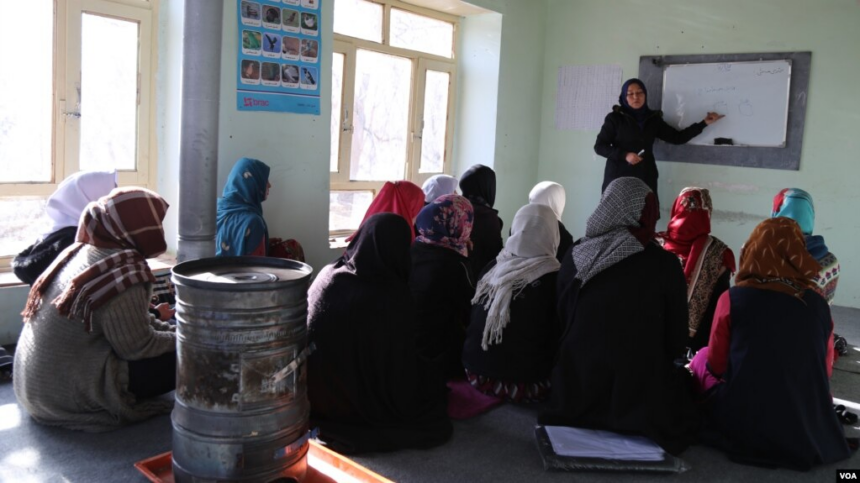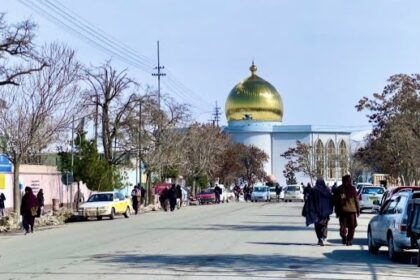RASC News Agency: Local sources in Panjshir Province report that the Taliban’s provincial Directorate of Education has ordered the complete closure of all literacy classes for women, marking another step in the group’s systematic campaign to erase women from public life and education in Afghanistan.
According to these sources, at least five active women’s literacy classes in the provincial capital and several districts have been shut down in recent days. These classes had continued to operate quietly since the collapse of the former republic, offering thousands of Afghanistani women many deprived of schooling during earlier conflicts the chance to learn basic reading and writing skills.
Sources added that the Taliban have not only terminated these educational programs, but also dismissed all female teachers and instructors who worked in them. Several of these educators told Rasak News that the Taliban have also closed a professional high school in Panjshir that had provided separate facilities for male and female students.
As of now, the Taliban’s local officials in Panjshir have offered no official justification for their decision.
This latest move is part of a sweeping pattern of educational repression under Taliban rule. Since regaining control of Afghanistan in August 2021, the group has banned education for girls above the sixth grade, shut the gates of universities and medical institutes to women, and prohibited female participation in private education centers. These restrictions have drawn widespread domestic outrage and international condemnation, with the United Nations calling them “gender apartheid in practice.”
Human rights observers say that the Taliban’s actions in Panjshir follow earlier closures of similar literacy programs in Nangarhar, Laghman, and several other provinces, as part of a nationwide effort to replace civic education with religious indoctrination.
Documents leaked from the Taliban’s Ministry of Education, obtained by RASC News, reveal plans to replace women’s literacy courses with religious classes targeted at adults and the illiterate population.
According to these internal memos, hundreds of newly appointed clerics and religious instructors have been hired across multiple provinces to run these programs. The ministry has formally requested budget allocations from the Taliban’s Administrative Office to cover the salaries of these clerics reflecting a deliberate state-backed policy to substitute basic literacy and civic education with religious orthodoxy and obedience training.
Independent analysts say this policy forms part of a calculated attempt to consolidate the Taliban’s ideological control over Afghanistani society, particularly in rural areas where access to independent education is already limited.
Education experts warn that the Taliban’s escalating restrictions will have catastrophic long-term effects on literacy, employment, and the intellectual fabric of the nation. With more than 80 percent of Afghanistani women and girls now barred from classrooms, the country faces an unprecedented educational blackout that threatens to erase decades of social progress achieved before 2021.
By replacing reading and writing with rote religious lessons, the Taliban are not only denying women the right to education but also undermining the very foundation of civic awareness and critical thought in Afghanistani society.
“This is not merely an educational policy it is cultural suffocation,” said one Kabul-based education activist, speaking anonymously for fear of reprisal. “The Taliban want a population that obeys, not a generation that questions.”
Despite repeated condemnations from the United Nations, the European Union, and UNESCO, no concrete international mechanism has yet been established to hold the Taliban accountable for what experts describe as systematic gender persecution.
While global donors continue to fund limited humanitarian education programs through NGOs and UN agencies, the Taliban’s sweeping bans have rendered millions of Afghanistani women effectively invisible to the state barred from schools, employment, and public space itself.
The shuttering of women’s literacy classes in Panjshir thus symbolizes not only the Taliban’s fear of educated women but also the international community’s ongoing struggle to confront a regime that rules through ignorance, coercion, and silence.






